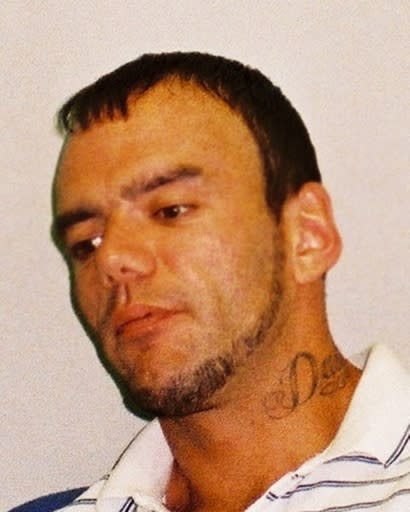Treasure hunters jailed for stealing rare Viking hoard, much of which is lost

A group of treasure hunters were jailed yesterday for attempting to conceal a rare Viking hoard worth up to £12m - much of which has been lost.
Metal detectorists George Powell, 38, and Layton Davies, 51, failed to declare the exceptionally rare treasure which included a ninth-century gold ring, a dragon’s head bracelet and fifth century crystal rock pendant, all of which were buried on Herefordshire farmland on June 2, 2015.
Powell, the ringleader, was jailed for 10 years while Davies, a former caretaker, received eight and a half years.
Both were convicted alongside two other men, Paul Wells, 60, and Simon Wicks, 57, with conspiring to conceal the find.
Wicks, a coin collector who had previous convictions for searching other people's land with a metal detector without the landowner's permission - was jailed for five years.

Wells wasn't present at court due to an illness but will be sentenced next month.
It is believed the treasure haul had been buried in one single, ancient, site and could have been by someone serving in the Great Viking Army in either 878 or 879, as prosecutors said the items were typical of a Viking hoard.
Only 31 of the coins have been recovered, although mobile phone photographs, recovered by police - showed the larger hoard, still intact, in a freshly dug hole.
During the trial, Worcester Crown Court heard the four had ignored the Treasure law- which states that artefacts must be declared, a process overseen in England by the British Museum.

Instead, they tried to sell some of the bounty through antiquities dealers.
Sentencing on Friday, Judge Nicholas Cartwright said the group ‘cheated’ the public of ‘exceptionally rare and significant’ treasures with about 90 per cent of the coins still to be recovered.
READ MORE FROM YAHOO NEWS
Two metal detectorists guilty of stealing £3m hoard of Viking treasure
UK treasure hunters jailed for stealing Viking-era hoard
Metal detectorists looking for a mate's wedding ring discover haul of gold coins
He said: ‘All four defendants played their respective parts. "You, Simon Wicks, were part of a conspiracy to conceal the stolen treasure and to sell it.
"Paul Wells, who will be sentenced a on future occasion, was part of a conspiracy to conceal part of the stolen treasure."

"The irony in this case is if you, George Powell, and you, Layton Davies, had obtained the permissions and agreements which responsible metal detectorists are advised to obtain, if you had gone on to act within the law after you found this treasure, you could have expected to have either a half share, or at very worst a third share of over £3 million to share between the two of you."
British Museum treasure registrar, Ian Richardson, carried out his own inquiries into the coins after hearing of the discovery, according to the BBC.
He said: "I've been doing this job since 2007 and the number of cases of people being convicted for theft, which essentially derives from them not reporting their finds of treasure, has increased.
"It's not insignificant, it's not a victimless crime, it's depriving us all of our heritage."

